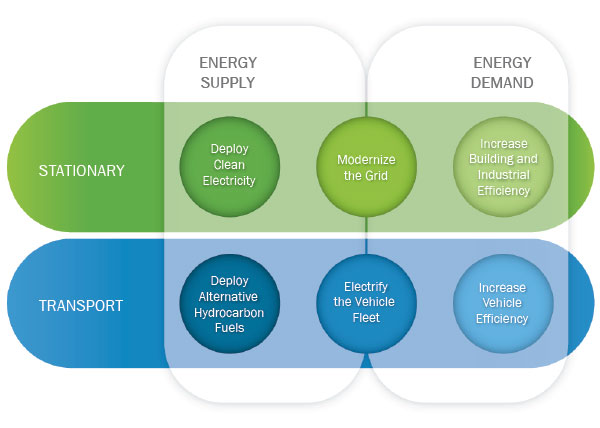Introduction
The American Academy convened representatives from academia, industry, and government in Washington, D.C., on May 19 and 20, 2011, to discuss how social science research and expertise can speed the adoption of new energy technologies. The workshop was chaired by Robert W. Fri, a Fellow of the American Academy, Visiting Scholar and Senior Fellow Emeritus at Resources for the Future, and Project Director for the Academy’s Alternative Energy Future project. Fri noted that the workshop was designed to “begin the conversation between the energy policy community and the social science research community,” in order to identify steps to help ease the adoption of new energy technologies and to outline a future research agenda.
Steven E. Koonin, a Fellow of the American Academy and Under Secretary for Science at the U.S. Department of Energy (DOE), provided a foundation for the workshop discussion by highlighting six general strategies for transforming the energy system to enhance energy security, improve American competitiveness, and reduce environmental impacts (Figure I-1). Successful transformation of the energy system via these six strategies will require extensive diffusion of innovative technologies and practices throughout the economy. However, individual, household, commercial, and community behavior will affect the acceptance of these technologies, and diffusion of innovations throughout society can also be slowed by institutional rigidity. The American Academy workshop presented solid evidence that the social sciences can help address these challenges and highlighted several existing social science applications that could be applied immediately to make energy policy and programs more effective (see sidebars in chapter 2). In addition, the workshop raised a number of issues on which further social and behavioral research would be productive and generated ideas for strengthening the linkages between social scientists and energy policy analysts, program managers, and decision-makers.

Figure I-1. Six strategies to address national energy challenges. Source: United States Department of Energy. 2011. Report on the First Quadrennial Technology Review. Washington, D.C.: U.S. Department of Energy.
Despite persuasive evidence that social scientific tools can make energy policy and programs more effective, the application of the social sciences to energy policy historically has been limited, especially at the federal government level. Structural and cultural obstacles hinder the integration of social science expertise into policy development. Chapter 1 of this report describes five strategies for enhancing collaboration between energy policymakers and social scientists. Chapter 2 provides a summary of the workshop, including the keynote talks and the panel discussions. Chapter 3 presents a research agenda that addresses several questions that participants identified as being in critical need of attention. Finally, chapter 4 contains a representative sample of many decades of social science research that would be useful to the energy policy community.